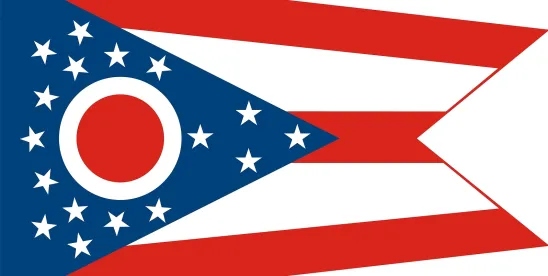Business
Ohio DFI Updates Guidance, Suspends Licensing for Loan Arrangers

On October 31, the Ohio Division of Financial Institutions (DFI) announced a significant change regarding the licensing of nonbank entities involved in arranging consumer loans under the state’s Small Loan Act. This decision reverses the DFI’s earlier interpretations issued in December 2024 and January 2025, which required nonbank loan arrangers to obtain a state license for facilitating loans of $5,000 or less in exchange for compensation.
The updated guidance effectively pauses the licensing requirements for these bank loan arrangers for the foreseeable future. This development provides clarity and regulatory relief to companies operating in the marketplace lending sector.
Key Changes in Licensing Requirements
The DFI’s latest guidance includes several crucial clarifications:
1. **Licensing Suspension**: Nonbank entities that receive compensation for arranging loans from federally insured banks, regardless of the loan amount, no longer need to obtain a license under the Small Loan Act. This suspension remains in effect until further notice.
2. **Exemption for Interest-Free Loans**: Entities that make or arrange loans of $5,000 or less without charging interest will be exempt from licensing requirements for the calendar years 2025 and 2026.
3. **Non-Enforcement of Certain Provisions**: The DFI has confirmed that it will not enforce any provisions of the Small Loan Act against activities that have been newly exempted from licensing.
4. **No Penalties for Prior Unlicensed Activity**: Entities that participated in these activities without a license during 2025 will not face any enforcement actions.
These changes have profound implications for marketplace lending platforms and other nonbank participants that rely on partnerships with banks. By removing the immediate uncertainty surrounding licensing requirements, the DFI allows these companies to operate with greater confidence.
Implications for the Lending Landscape
The DFI’s reversal is expected to facilitate a more dynamic lending environment in Ohio. Companies engaged in these practices are encouraged to remain vigilant regarding ongoing regulatory developments. As the DFI continues to evaluate its approach, businesses operating across different jurisdictions should assess their compliance structures and be prepared to adjust as needed when further regulatory changes are introduced in 2026 and beyond.
As the landscape of consumer lending evolves, this updated guidance represents a notable shift in regulatory oversight, aligning Ohio’s policies with the contemporary needs of the lending market. The DFI’s actions underscore the ongoing dialogue between regulators and the financial services industry, aiming to foster innovation while ensuring consumer protections are maintained.
-

 Science4 weeks ago
Science4 weeks agoInterstellar Object 3I/ATLAS Emits Unique Metal Alloy, Says Scientist
-

 Science4 weeks ago
Science4 weeks agoResearchers Achieve Fastest Genome Sequencing in Under Four Hours
-

 Politics4 weeks ago
Politics4 weeks agoAfghan Refugee Detained by ICE After Asylum Hearing in New York
-

 Business4 weeks ago
Business4 weeks agoIconic Sand Dollar Social Club Listed for $3 Million in Folly Beach
-

 Health4 weeks ago
Health4 weeks agoPeptilogics Secures $78 Million to Combat Prosthetic Joint Infections
-

 Business4 weeks ago
Business4 weeks agoMcEwen Inc. Secures Tartan Lake Gold Mine Through Acquisition
-

 Lifestyle4 weeks ago
Lifestyle4 weeks agoJump for Good: San Clemente Pier Fundraiser Allows Legal Leaps
-

 Science4 weeks ago
Science4 weeks agoMars Observed: Detailed Imaging Reveals Dust Avalanche Dynamics
-

 Health4 weeks ago
Health4 weeks agoResearcher Uncovers Zika Virus Pathway to Placenta Using Nanotubes
-

 World4 weeks ago
World4 weeks agoUS Passport Ranks Drop Out of Top 10 for First Time Ever
-

 Entertainment4 weeks ago
Entertainment4 weeks agoJennifer Lopez Addresses A-Rod Split in Candid Interview
-

 Business4 weeks ago
Business4 weeks agoSan Jose High-Rise Faces Foreclosure Over $182.5 Million Loan








